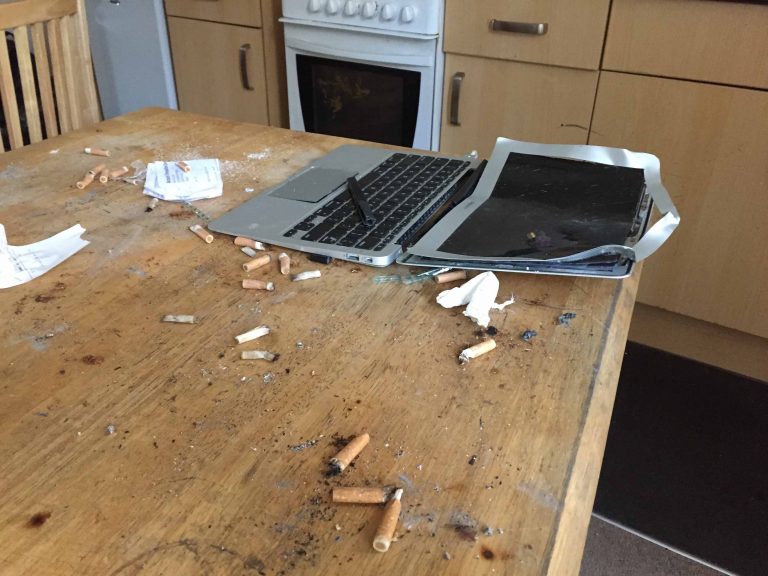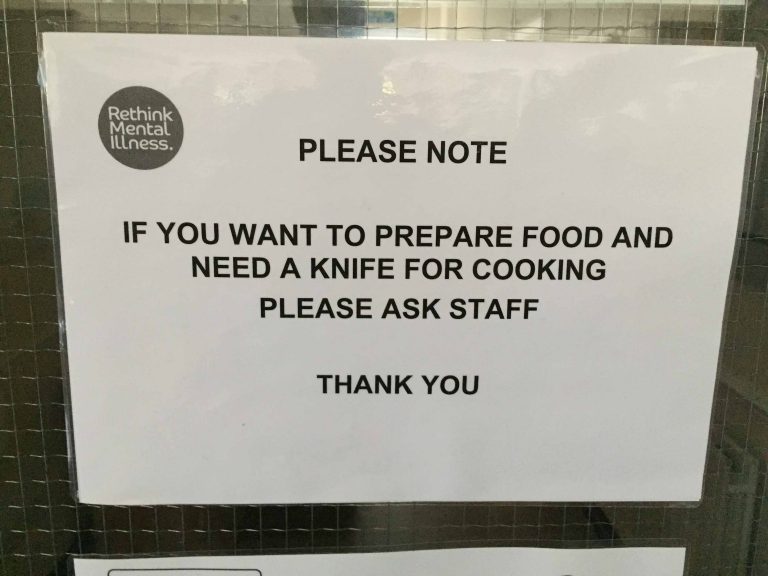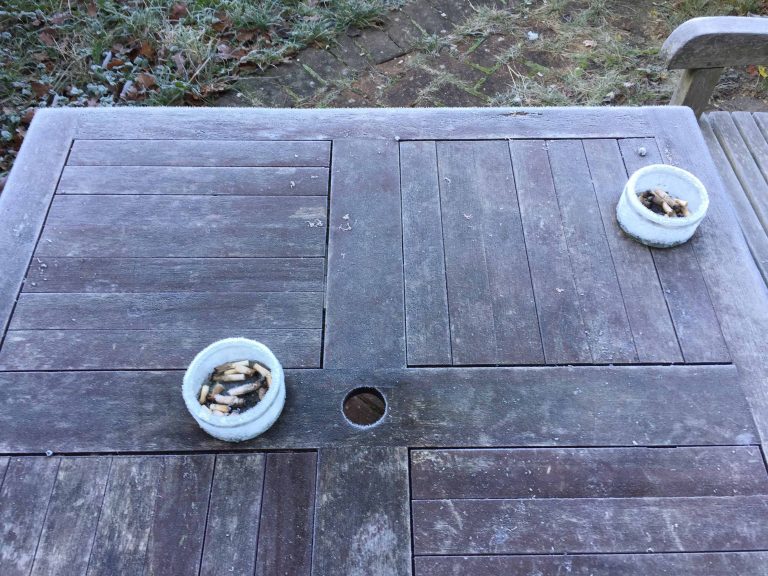I’ve spent the last five, six years, feeling I’m not getting things. At times I feel like I’m encased in some sort of prophylactic that prevents me from seeing or hearing him properly, from sensing everything I need to sense; at others it’s as though he is trapped in a transparent silo and all I can do is circle around lecturing and hectoring him, all meaningless – or pointless – to use one of his favourite words.
‘Why do you give a fuck? Why do you care so much?’ he asks me from time to time.
‘Because you’re my son. Because I love you. Because I’ve never loved anyone more than you and your brother.’ It sounds over-sweet and cheap when I play it back now in my head, but I’ve learned to keep what I say simple. And truthful.
Every now and then I think he’s asking me this question because he himself wants to find a route to caring. At other times I think he wants to be divested of caring so much, that his love and anxiety for me, for his mother and his older brother, are too much of a burden.
Sometimes I bring up the fact that we’ve led these split lives since he was born. Me coming to London for a chunk of every year to be with the two of them. Them coming to India once, twice a year, first with both parents, then with their mother and then on their own, being fed into the airline system at one end by one parent, received on the landing end by the other. I tell him how I used to see them off at the airport and cry sometimes when I got home. His older brother has told me he used to miss me.
‘Not me,’ he says, ‘I didn’t think about it. Once you were gone you were gone. I thought it was normal.’

Normal. Your parents dying before you is normal, that’s what they are there for, to bring you up, and then to die well before you do, leaving you to live at least some part of your life free of their presence. The same applies to you and your children, overlapping like cross-fading soundtracks: your life before parenthood, your life with your children, your children’s lives after you. I’m now looking at an alternative cross-fade, my life before my younger one was born, the years with him and now life after him – which is not what I was designed for. Suddenly, I don’t fit my life. Every corner is wrong, the size is suddenly incorrect, somebody else’s life delivered to me by mistake, but now it’s the only one available.
I was close to my own father, which many people are not. He died thirty-one years ago and I still miss him, not in a way that cripples me, but acutely nevertheless. I have vivid memories of time spent with him, of learning things, of great laughter, love and joy. I don’t need to dig up those moments, they are inside me, woven into the fabric of my being. What I regret about my father’s death is that it came too early. I feel sad that he never saw my sons, never played with them or watched them grow up. Then again, on days when I unsubscribe from the rational, I feel he has seen all this, and that he’s still there, somewhere, and comes to visit from time to time. Had he lived a bit longer he would have directly exchanged sight and touch and love with his grandsons; but the way things turned out I’ve always felt he and the kids could only reach each other through me.
Thinking about what my son went through before he killed himself, at times I feel I didn’t let enough of my father through, or of my mother either, to help him take a different route. I feel I failed as a medium – as a channel I allowed myself to be blocked.
One of the things I find myself missing is the fear. Even now I hesitate to leave my laptop where you might find it and smash it, or my mobile phone where you might take it and walk off, to listen to music, to drop it and break it, to have it slip out of your pocket and not even notice, to sell it to a dealer for a few quid’s worth of some shitty low-grade shit, or my wallet with whatever small amount of cash and the house keys, which are far more important.
It’s true that you never actually walked off with my phone, and the only laptops you smashed were the ones you considered your own, but one never knew: I could never take the risk, and I’m still not sure that someday you wouldn’t have done to my stuff what you did to your own. But now that tension has worn thin. The putting away, the hiding of stuff, comes from habit that’s now emptied of proper anxiety, and I find myself wishing it wasn’t so. I find myself wishing I was still afraid.
I’m sitting on a bus when an ambulance goes by, siren on. Then a police car, roof on blue fire, going in the other direction. There’s a stab of anxiety, but the knife is one of those trick ones kids play with, with a plastic blade going back into the handle. The sirens aren’t for you, they can never again be for you.


Over the last five years I’ve rehearsed the sirens many times. Ambulance tearing through the night, me gripping your hand as you lie on the stretcher, prayers stuck in my throat, unable to break out. Police siren stopping outside the door, and then the doorbell. Me 9,000 miles away in India, too far to hear the siren, which, in fact, is what finally happens. Me not there for the police standing outside your mother’s front door, no siren, just bringing the news. Me back in Calcutta when they actually come the first time, three years ago. The photos I receive of you all tubed up in the ICU – induced coma to counter huge overdose, life saved because of timely intervention – the drug traces they find coming out of you unidentifiable, Chinese whispers, outside their range of tests.
When you come out of the ICU and go back into the mental ward everybody weighs up those two bruiser-words – suicide and self-harm – and then rejects them. At the times you do admit to doing the drugs, you say you were just trying to have a blast, pushing the limits, taking this new substance, popping three small squares of this paper when you were supposed to take no more than one – because you’d read that some guy had swallowed nine and survived.
Nevertheless, over the last few years whenever I arrive from India, among the first things I always do is hide the really sharp Japanese knife and the small, lethal German paring knife in your mother’s kitchen. I’m not thinking you’ll use the knives on yourself, I’m not thinking that I or someone else might be at the wrong end of the blade, I’m not thinking anything specific, I’m just thinking if there was a bottle of aspirin, an electric drill or car keys I would hide those too.

When I was little I fell ill often, sometimes seriously, and each time I remember my mother praying that the illness be transferred to her. I understand that now, properly only now. It’s not that I wanted to take over your ‘madness’, as you called it, but I often found myself wishing there was some way it could be siphoned entirely into me, like I was some kind of Neelkanth Shiva able to quarantine poison in his throat, or, like with some water-purifying plant, processed through me and out as waste.
Now the only way I can process your death, put it through the computation of my still being here and your not, is to try and think of everything as magical. Every single thing, every moment, every encounter, every sight that crosses my eyes. Everything magical, unreal, impossible and impossibly insulting to logic and reason.
You and I, we talked a lot about logic and reason. I sometimes felt that Logic-and-Reason was a faraway country that you would now and then consider visiting, but that you were not convinced by the recounting of my travels over there.
I think of the skin between the rational and the irrational. That skin that we all have, that skin of yours that got scraped away and never grew back.
The first psychiatrist who sees him is in India. I take him to the appointment when he’s just turned seventeen. It’s a disorder, but definitely not schizophrenia or anything long-term like that.


Sign in to Granta.com.







